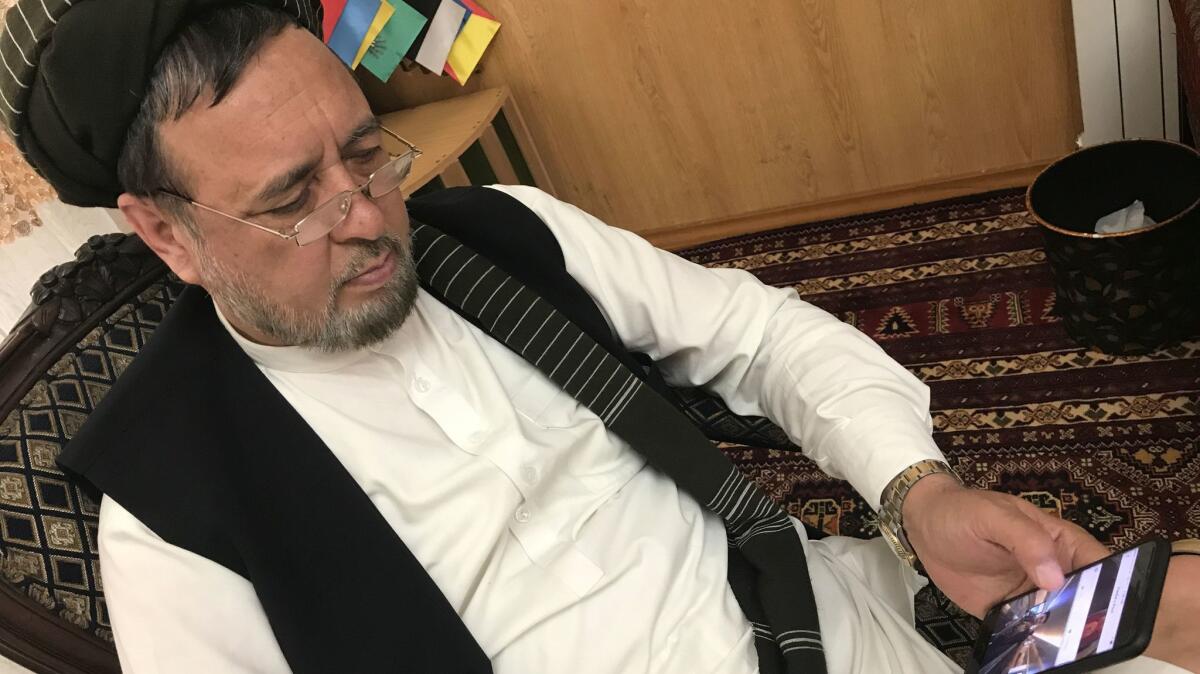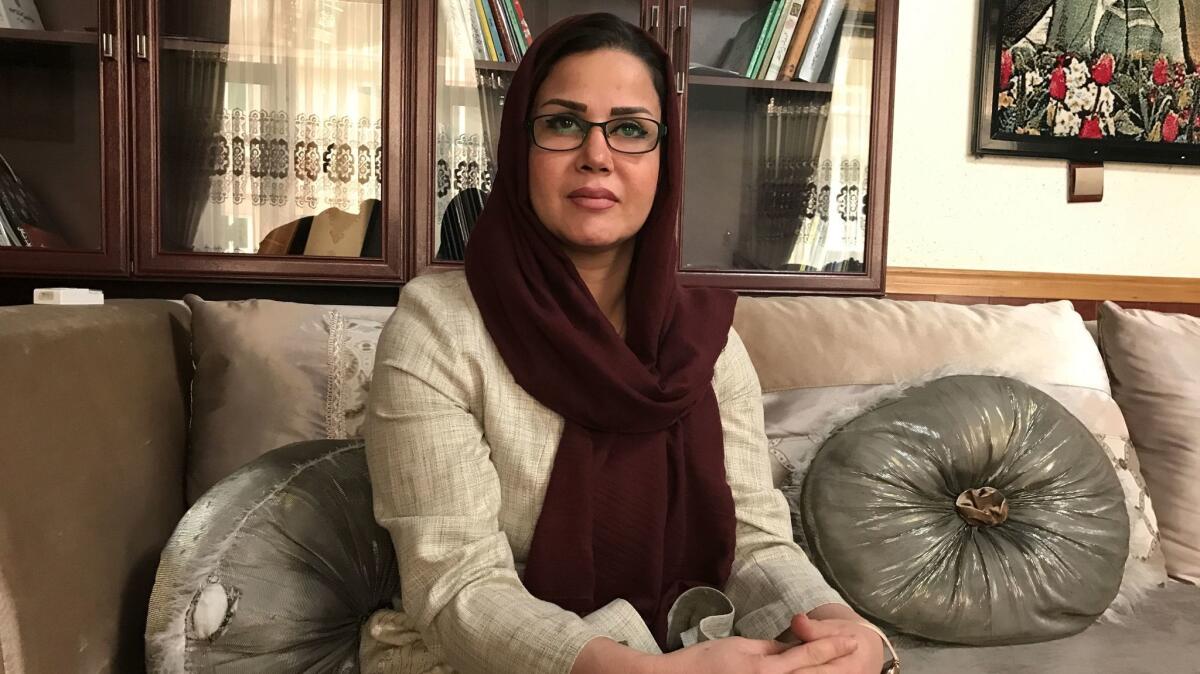An Afghan leader caused a stir by posting pictures of his wife on Facebook

- Share via
Mohammad Mohaqeq has been doing something unusual in Afghan politics: posting pictures of wife Waheeda on social media.
In one recent image, the senior government official poses beside her and their 7-year-old daughter, Hadiya, in front of a crystal-clear lake in the northern province of Bamian.
In the patriarchal world of Afghanistan, where most women still wear the burqa in public, the prominent placement of females in the photographs caused a stir.
But like other politicians in this young democracy, Mohaqeq, a former leader of the anti-Soviet jihad, or resistance, who is now a deputy to the country’s chief executive, Abdullah Abdullah, has started to realize the importance of appealing to voters who embrace the idea of social liberalization.
“The time for women not to appear in society is long gone,” Mohaqeq, 62, said in an interview at his home in Kabul, the Afghan capital. “Women participate in society, politics and economic affairs. In my view they cannot be prevented” from appearing on social media.
The wives of leading politicians generally have not been in the spotlight in Afghanistan. Former President
Not that Mohaqeq is exactly a symbol of modernism. He has four wives and 23 children.
He said raising the profiles of the women in his life was also part of a plan to nominate one of them to run for parliament this year.
He declined to say which wife, but presumably it is Waheeda, the one whose photograph appears most often in his Facebook posts. He has also posted a picture of himself with another wife, whom he accompanied on a medical trip to Uzbekistan.
Waheeda Mohaqeq, a 42-year-old mother of six, acknowledged an interest in politics but said it would be her husband’s decision: “I have to wait for his OK.”
She is his third wife and the most educated, having studied English literature in the northern city of Mazar-i-Sharif in the 1990s. A university classmate, Dawood Rahjo, recalled her as a vocal presence on campus.
“She used to make speeches in almost all official university gatherings, programs or exhibitions,” he said.

She met Mohaqeq in 1994 when he participated in an event at the university. “She was known as a very active and courageous student, so it was her choice to marry Mr. Mohaqeq,” Rahjo said.
Mohaqeq began using Facebook in 2010 and now has more than 90,000 followers. He said Facebook is “100 times more effective than the real media” for communicating with ordinary citizens.
Photos of his wife attract dozens of messages, some of which are critical. One Facebook comment said that Mohaqeq and other ethnic Hazara politicians were part of a cloistered political establishment that has failed to cultivate a younger generation of men and women to replace it — and that the photographs of his daughter were simply a political tactic.
“There are thousands of Hadiyas among the Hazara people, but unfortunately they’ve all been let down and they have no one to support them,” the post said.
Waheeda Mohaqeq, who had not commented publicly on the issue before this article, brushed off the criticism.
“People may have both good and bad opinions about us, but the majority of the comments are positive about my presence” on social media, she said.
Rula Ghani, wife of the current president, Ashraf Ghani, has been somewhat more outspoken. Before Abdul Rashid Dostum, a vice president, left the country in May amid accusations that he had a man beaten and sodomized, Rula Ghani said he was in effect under “house arrest” — a rare political statement from a first lady.
Other female relatives have begun appearing in photos with politicians.
Gulbuddin Hekmatyar, a former insurgent leader who recently agreed to make peace with the Afghan government, gave a speech at the presidential palace in May with two women sitting prominently in the row behind him.
An official with Hekmatyar’s political party, Hezb-i-Islami, identified them as Hekmatyar’s wife and daughter.
“Mr. Hekmatyar loves for his female family members to accompany him on trips, meetings and gatherings,” said the official, who declined to be quoted by name because the issue was “sensitive.”
Maryam Sama, a social activist and TV anchor, offered another reason that some Afghan political leaders are challenging the traditions of this conservative Muslim society when it comes to women: staying in the good graces of the international community upon which the economy still depends.
“I doubt that jihadis like Mohaqeq believe in women’s rights, but they show off their families on social media for their political purposes,” she said.
Regardless of the motive, she added, “it raises hope that these politicians would get used to the presence of women in society.”
Faizy is a special correspondent. Times staff writer Shashank Bengali in Mumbai, India, contributed to this report.
Sign up for Essential California
The most important California stories and recommendations in your inbox every morning.
You may occasionally receive promotional content from the Los Angeles Times.







